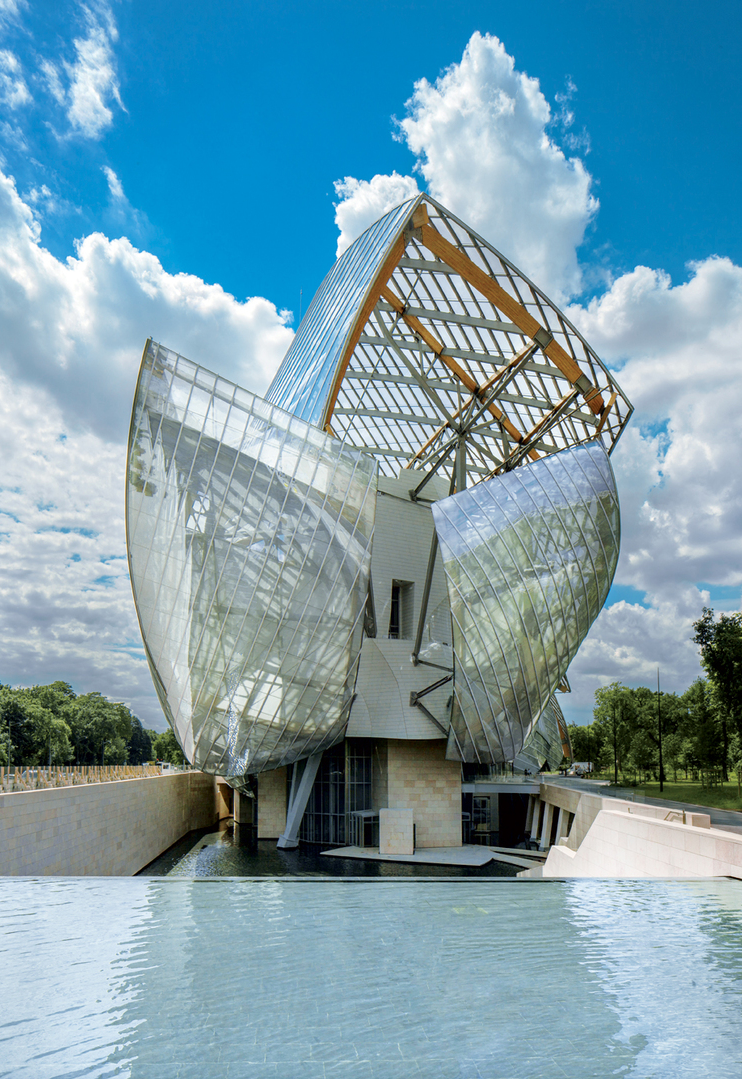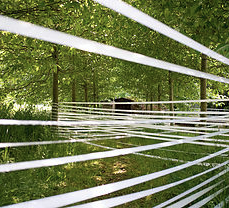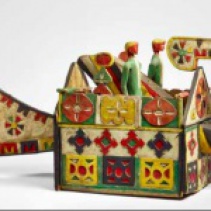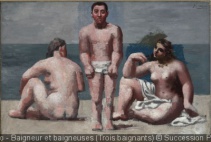Q: Leo, "Django" is the first film where you've played such a vicious, villainous character. How do you feel about it?
DiCAPRIO: It was one of those roles where you have to commit yourself and not hold back. This kind of character pushes you further than you really want to go and there was absolutely nothing about the man that I could identify with. He is the most despicable, vicious, sick, narcissistic, racist human beings you could ever imagine. I've never done anything close to this kind of character and it was a relief to finish playing him. I hated him.
Q: So you did it for the challenge?
DiCAPRIO: I did it for the challenge but also because it was a very dark time in American history and the subject matter was very interesting and deserves to be explored. I also wanted to work with Quentin Tarantino who is one of the most innovative and daring directors in the business. He's been developing this film over several years and I came into it fairly late in the game but we had several conversations about creating this vicious character and taking it to the extreme.
Q: Apparently you were reluctant to use the "N-word" (Nigger) during the shooting?
DiCAPRIO: It was just distasteful and naturally I wondered how far we needed to go with it. I was thinking about maybe toning down my character's level of atrocity but Sam (Jackson) and Jamie (Foxx) were telling me that I had to push the character to the limit. They felt that audiences would resent it if I was "sugar-coating" the character. After that I realised that that was where we needed to go and that was part of the reality however horrible and sick it was.
Q: Did you do much research yourself into the slavery era?
DiCAPRIO: I've read a fair amount about the history of the sugar plantations and it's appalling how bad things truly were during that era. This film only scratches the surface of what happened in this country.
Q: How did you see your character apart from his evil nature?
DiCAPRIO: Calvin Candie represents the moral decay of the South during that era in American history. He was the expression of the evil in slavery and the abominable level of cruelty that it fostered. I'm generally not interested in playing evil men but every once in a while in your career you need to go beyond what you're comfortable with or drawn to playing. But I can tell you that I was very happy to be rid of the character when we reached the last day of filming. (Laughs) This character was so vicious even Quentin hated him! (Laughs)
Q: Was the sense of relief also accompanied by some sense of having pushed the envelope and gone out your own comfort zone when it comes to acting?
DiCAPRIO: The thing about playing the villain is that you have absolute freedom to escape all limits and boundaries. You're not restricted to any moral guideposts or sense of proportion and that was a strange and kind of self-indulgent process. Once you get into that limitless sensibility, you find that the character takes over and has a life of its own that you don't even want to control. You just let all your emotions and instincts flow.
Q: This has been one of the busiest years in your acting career with Django, Gatsby and Wolf of Wall Street in the pipeline...?
DiCAPRIO: I've never done three films back-to-back like this before and it wasn't entirely planned that way, but I'm very pleased with the work I'm doing and that's ultimately the most important thing. It's been one of the best years I've ever had creatively and you hope to keep finding great projects and see where that takes you.
Q: Your co-stars say that you can be quite intense while working....
DiCAPRIO: When it comes to work, I always find the process pretty intense especially when you're doing drama. In my private life, I like to keep things light. I don't brood about the world. But my work is different. I really never look at acting as fun, because if you really want to try and do a good job, it's very hard to have fun unless you're doing some wonderful improvisational comedy where things are just a joy every day. It’s not that I look for very dark films or dark roles. It's never a conscious thing. I just try to be a part of films that move people. A lot of times, those are about the darker side of humanity.
Q: Are you conscious of leaving a legacy as an actor?
DiCAPRIO: I really am motivated by being able to work with great people, and create a body of work for myself that I can look back on and be proud of. When I was 15 years old and I got my first opportunity in movies, I went and watched movies for a year and a half. I watched every possible great film and every great performance I could, and since then I’ve said to myself, how could I ever match that kind of work that is part of the great legacy of film? That‘s really my motivation and that’s a fact. I feel like I want to do something as good as what all my heroes have done. As an actor, I do everything possible to tell a great story in a truly artistic way, but at the end of the day you never know how critics and audiences are going to respond. My goal is to keep doing great work... I haven’t stopped yet and hopefully the work will never stop. I will always have that drive to not only produce great work, but also to make a difference in the world.
Q: You tend to play very driven characters. Is that your preference?
DiCAPRIO: Look, I don’t know really. I just respond to what I read and what I’ve read in these roles are characters that have moved me emotionally in some respect. And it just goes back to what moved me in cinemas at a very early age. These were the types of characters that I felt emotionally connected to. It’s inexplicable, but I think you never feel as if you’ve arrived there or done that role that satisfies that. So I’m driven to be able in my mind to emulate or get close to the great masterworks of great performers I’ve seen in cinema from years past. I don’t know if that thirst will ever be quenched. But I would love to try other genres and I look forward to doing them. It just depends on what moves me emotionally, I guess.
Q: You’ve had an incredible career thus far. Do you have fond memories of all the partying you did before you became so famous with the release of Titanic and which turned your life upside down?
DiCAPRIO: It’s only lately that I’ve occasionally had bouts of nostalgia about that time in my life. On one level the attention and being followed around everywhere could sometimes be aggravating, but I loved hanging around with my friends and going out all the time and playing poker until dawn. There was this wild sense of liberation where I feel I could do pretty much anything without thinking about the consequences. Those were my carefree years. Sometimes I like to think I could turn back the clock and revisit that time of my life! (Laughs) In the years before Titanic I was enjoying life to the maximum. I miss the days when I could party hard and do pretty much anything I wanted. Today, every young actor or actress has to be much more careful about getting wild if they don’t want their life trashed publicly.
Q: How did your popularity affect your relationships with women?
DiCAPRIO: I did a lot better before I became so well known. (Smiles) As soon as your fame overwhelms your life, you have to kind of hide out and you can't just go into a bar or wherever and meet people. It becomes a mob scene. It just makes everything more complicated. But I still have a sense of freedom and I rarely have reason to feel down or worry too much about things. I have a very good life and I like to make the most of it.
Q: How do you think you’ve changed from your days as a young man about town in Hollywood? DiCAPRIO: (Laughs) I’m a lot calmer. When I was growing up, I was the kind of kid who was full of energy and acting was my outlet for all that excess energy. I could never keep still and even as a teenager and I had this need to keep busy and look for things to occupy myself with. I remember loving to imitate my mother’s friends. I’d do little performances imitating them, making fun of them, making her laugh, making my grandparents laugh. Acting fulfilled my creative needs and it’s been my focus for as long as I can remember. But I’ve also invested a lot of my time in trying to promote awareness on environmental issues and the importance of looking after our planet.
Q: What does your involvement in promoting green and ecological awareness mean to you? DiCAPRIO: In my adult life, my environmental work and activism remain a priority. I created a foundation (Leonardo DiCaprio Foundation) that focuses on raising public awareness of the very important issues concerning our planet. The United States and China needs to set an example for the rest of the world to follow with clean energy and green technology. I was very affected when I was young as a kid living in an urban environment. My only access to understanding nature was through documentaries and being able to go to the natural history museum and watching IMAX shows on the rainforest. It just affected me at a very young age, the depletion of the rain forest, our natural resources. What's sad is that even though we've made progress, environmental and climate change issues continued to be ignored and re-ignored. So this year I'm going to take a break after doing three films in two years and I'm going to do rededicate myself to trying to do good for the environment.
Q: Your career spans two decades even though you are still a relatively young man. Did you get jobs fairly easily when you were starting out?
DiCAPRIO: No. It took me a while before I started getting roles. I spent a year being rejected at one audition after another when I was 14. It was a very tough time but in some ways the kind of experience that toughens you and makes you appreciate everything more. You also learn not to tie your identity and self-worth to whether you are getting parts or not. You learn to keep pushing and eventually you’re going to find work. And that’s what happened.
Q: Did your acting talent already manifest itself in school?
DiCAPRIO: I was always the smallest and skinniest and so it was hard for me to fit in. So I loved creating characters and doing imitations of my parents’ very bizarre friend. I loved the attention. In school I was about a foot shorter than anyone else, always jumping up and getting laughs—a little smart-ass with a big mouth. School was like this wild safari where I could make a name for myself, but it never really worked. They just basically looked at you as the class clown and dismissed you. I never belonged. I was constantly trying to stand up to bigger kids and get in their faces and of course I got the crap beat out of me sometimes. I had this real punk mentality. (Laughs) I would mouth off to anyone! A lot of my acting inspiration comes from these contests we called "bagging" where I would sit around with my friends and we would trade insults, tell stories, or do anything to get the most laughs. It was like being in acting or improv class without even knowing it! (Laughs)
Q: How do you deal with all the hype and the sex symbol kind of thing that follows you around. DiCAPRIO: You have to deal with who you really are in the end. If you have internal demons, you are going to have to deal with them no matter whether you're famous or not. We've all heard a million stories of people that have gotten fame and wealth and great opportunity and ruined it all. Your life isn't your own when that kind of stardom happens, and you have tabloids every day making up stories about you. That’s the downside and you have to figure out how you want to deal with it.
Q : How do you feel about your life in general?
DiCAPRIO : What I definitely feel a need for is to make my life about more than just my career. One night I was thinking to myself how little of my life has been lived normally and not spent on some far-off movie location. Family is something I’m starting to think about more and more especially now that my Oma (his grandmother was German as is his mother, Irmelin - ED) is no longer around.
Q: What are your memories of growing up with your parents?
DiCAPRIO: My dad (George DiCaprio, 69, who divorced Leonardo's mother when he was only 7 months old - ED) is still a diehard, left-wing hippie, and will be until the day he dies. My dad introduced me to writers, artists, and so many wild, creative people. Every few months we’d go to some hippie doo-dah parade as Mudmen in our underwear, carrying sticks andcovered in mud. (Laughs) We still hang out together in L.A. and talk about everything.
Q: But you grew up mainly with your mother?
DiCAPRIO: Yes, my parents broke up when I was just a baby and I stayed with my mom although my dad was very active in my upbringing over the years. My mom taught me so much about having principles and being respectful of others and encouraged my interested in the arts. My mom (Irmelin) did everything to get me into the best schools she could find. She would drive three or four hours a day back and forth to this top school that had a great arts programme so I wouldn't have to go to very violent local public schools in L.A.. I was also very close to my German grandmother who I always called "Oma" (who died in 2008 at age 93 - ED) She was such a wonderful woman and a great character. I still miss her a lot.
Q: What kind of guidance has your father given you over the years?
DiCAPRIO: My father has advised me a lot over the years and I respect his instincts and opinions very highly. I remember one time telling him that I had turned down a film (Total Eclipse) where I would be playing the French poet Arthur Rimbaud. Then my father got annoyed with me and started explaining how Rimbaud was the James Dean of his era, someone who was a free-thinking radical who had a revolutionary impact on poetry. Needless to say, I changed my mind, did the film, and I loved it. It’s not one of my best known roles, but I still think I did some interesting work in it.
Q: What are some of your best memories of your Oma?
DiCAPRIO: I have so many of her. When I started earning good money I would buy her all these beautiful scarves that she loved to wear. It made me so happy that I could do something nice for her. One of my proudestmoments of my life was being able to take Oma and my mother to the premiere of Titanic in London. I credit Oma for my never even letting myself for one moment think that I'm some kind of hot shot. She even once asked me why I didn't look as good as I did in Titanic! (Laughs) Whenever I would go to Germany I would take her to all my film premieres. She says I was practically born to be an actor. Oma kept reminding me, "Leonardo, you were always deez vay." She told me that she and my grandfather couldn’t even watch TV because I’d be dancing in front of it, doing crazy imitations. She said: "We should have known then." One day I looked at her and said, "I’m going to do it, Oma, I’m going to be an actor."
Q: Your mother's side of the family lived through WWII. Do you feel inspired by your mother's and grandmother's experiences?
DiCAPRIO: Yes. My mother (was born in a bomb shelter. Her father was a coal miner who didn’t believe in the Nazi regime, and the family tried to flee Germany. They endured years of starvation and sickness but their determination to survive was amazing. Whatever I do in life, I'm constantly inspired by what they went through and how I'll never think that anything in my life has been hard compared to what they went through.
Q: Do you have a favourite memory of your Oma?
DiCAPRIO: One year I took her to Paris where we were given a private tour of the Picasso Museum by one of the Picasso's grandsons. That was an incredible honour. He was extremely polite and pleased to be able to escort me and Oma through the museum. But I was kind of worried when Oma started pointing to some of the paintings and complained that she couldn't understand what they were paintings of! (Laughs) She kept pointing her finger at various paintings and would say things like, "Vat is dis vun about. It looks like noteeng." Or she would say, "And vat is dis vun supposed to be, some sick cat?'"There was this one painting of a nude woman and Oma just shook her head and looked at me, "Zis is NOT a vooman!'" That's why I loved Oma so much!
Q: Can you tell us the story of how your parents gave you the name Leonardo?
DiCAPRIO: Well supposedly my parents they were at the Uffizi Gallery in Florence, and my mother was pregnant and they were looking at a Da Vinci. My mother felt me kicking in the womb and my dad, who‘s Italian, said, ‘His name should be Leonardo!’ (Laughs)...At least that’s the version my parents gave me!" (Laughs)







